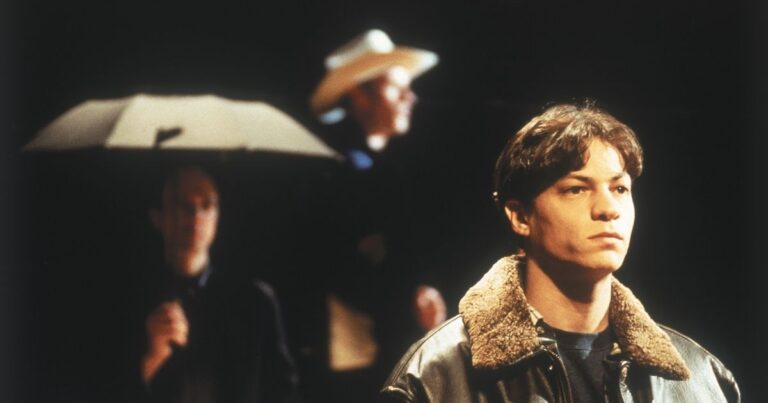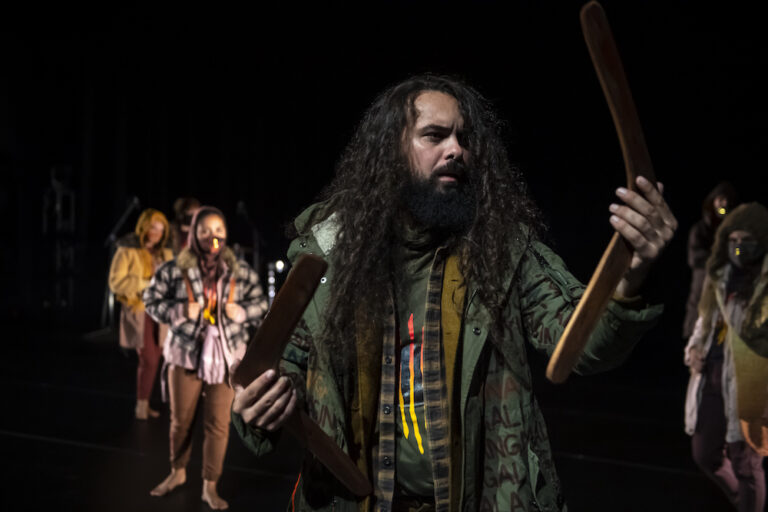
Assange: We are insurers of the people

It’s 7pm on a Friday and I’m waiting for my call to be connected to the Ecuadorian Embassy in London, where WikiLeaks editor Julian Assange has been a political prisoner for over a year.
Assange is lead candidate for Victoria in the Senate in this weekend’s Federal Election and, if elected, plans to act as an overseer in the Upper House where his central role would be to supervise the main parties and hold government to account.
Assange’s personal assistant answers. We exchange pleasantries and briefly discuss the weather. “We don’t get to see much sun here,” she says, before handing the phone to one of the most controversial figures in modern history.
“The role of the WikiLeaks Party is to be insurers for people in the election,” says Assange. “We’re not a party of government – we do not want to be a party of government. Our role is to make the bastards honest and not to join us.
“The Senate itself was always meant to be a house of oversight – it has unfortunately due to the dominance of the two major parties, become a house of deal-making. We want to bring that original purpose back to the Senate.”
The WikiLeaks Party is running Kellie Tranter and Alison Broinowski for the Senate in NSW, and Assange is urging the citizens of NSW to vote for them.
“WikiLeaks, the publisher whose ethos has inspired the party, has a seven-year reputation for fearlessly finding the truth and fearlessly publishing it,” he says. “The only smart thing to do in NSW is to vote for WikiLeaks in the Senate.”
Assange believes there has to be another party in the Senate that is not represented in the House of Representatives, arguing a party of supervision is needed to monitor the major parties and expose wrongdoing.
“[Once a party] gets into government it will use its power over the expenditure and various Australian bureaucratic institutions – from the military up to health and social security – to give sweet deals to its mates and pursue its ideological agenda,” he says.
“That has to be monitored and scrutinised and misbehaviour exposed. That’s what WikiLeaks does in the investigative journalism outlet and that’s what we intend to do in the Senate.”
The WikiLeaks Party champions freedom of the press and safeguarding people from surveillance. The party is opposed to the concentration of media ownership and believes that a strong independent media sets the parameters for political debate.
“Our policies are concerning media and protection of journalistic sources and protections of rights of Australians from surveillance in Australia,” he says.
“We live in a ‘mediaocracy’. Those are the parameters of political debate – what is important politically is set by the quality and courage of our media.”
Newspaper circulation in Australia shows that News Corp titles account for 59 per cent of the sales of all daily newspapers, a monopoly Assange describes as unhealthy.
“The situation for Australia, with all but two of the major Australian cities having only one daily newspaper and the lions’ share of them owned by News Corp, is quite unhealthy,” he says. “That is one of the worst concentrations of media ownership anywhere in the world.
“Rupert Murdoch appears to see the function of journalism not as freedom of expression but freedom of extortion.”
Assange emphasises the influence Rupert Murdoch and News Corp have on political discourse.
“In Australia, it’s quite clear from the way The Daily Telegraph has been covering the election and the Herald Sun that Murdoch has provided that he is going to try and get Tony Abbott elected,” he says.
“So we see it as very important to try and improve the quality of the Australian press, and by using the Senate position to bring up subjects that are otherwise not being well reported.”
Assange has been the subject of an arrest warrant for almost three years following allegations of sexual misconduct in Sweden, under laws specific to that country.
“I have been detained for something like 997 days now in the UK, that’s a pretty strange situation where you can be held in solitary confinement, under house arrest and not allowed to leave the country without ever having been charged,” he says.
Critics of Assange highlight his failure in travelling to Sweden to face questioning in an effort to clear his name. But he says it is normal for police to visit other countries if seeking to question a suspect.
“The more interesting question is why Sweden hasn’t come here which is normal in other cases?” he asks. “Why hasn’t Sweden guaranteed to the state of Ecuador that it will not extradite me to the US? Such diplomatic guarantee in extradition is normal.”
It has been speculated that the Swedish case against Assange could lead to his extradition to the US. When asked whether he believes America will drop their case against him, Assange says it will not happen.
“Probably not,” he says. “I hope not in the sense that if you’re doing good journalism by its nature it’s often controversial. If you’re doing good work exposing very dark organisations, they will try and make their counterattacks.”
If Assange is extradited to the US, he believes he could be subject to the same treatment Bradley Manning endured when first arrested and held in solitary confinement.
“We only need to look at the treatment of Bradley Manning to understand the seriousness of what that would mean in practice,” he says. “I’m not scared of being in prison – I have been in prison in the UK for 10 days in solitary confinement.”
“But that said, it would be simply unwise to throw myself into the situation that Bradley Manning is in.”
As more people share details of their lives on the Internet and voice public opinion, Assange gave his view on how things could evolve in the future.
“As the Internet has merged with society, society has also merged with the Internet and while that has produced very important freedoms, it has also meant that nearly all important communication we have is intercepted on bulk,” he says.
“Two billion interceptions per day are being permanently stored and indexed in the bowels of an unaccountable foreign spy agency. That is a titanic power inequality that is so severe that it appears to be distorting the rule of law in the West and could lead to quite a grim future – William Binney describes this as a totalitarianism.”
But Assange isn’t against global connectivity, and says it has seen the creation of a new political will shaped by the propagation of opinion around the world.
“Now on the other hand, the same technological tendencies of everything being wired and networked together is producing another important phenomena, that is the creation of a new body politics,” he says.
“So as everyone is communicating with each other, they’re also exchanging their views about what is right and what is wrong and that is creating a new source of political will.
“Supportive phenomenon has led to a doubling of political parties in Australia. The last time [that happened] was in response to the Great Depression, but Australia is not going through an economic crisis – so what’s happening? It seems that there is a new political awakening in Australia.”









